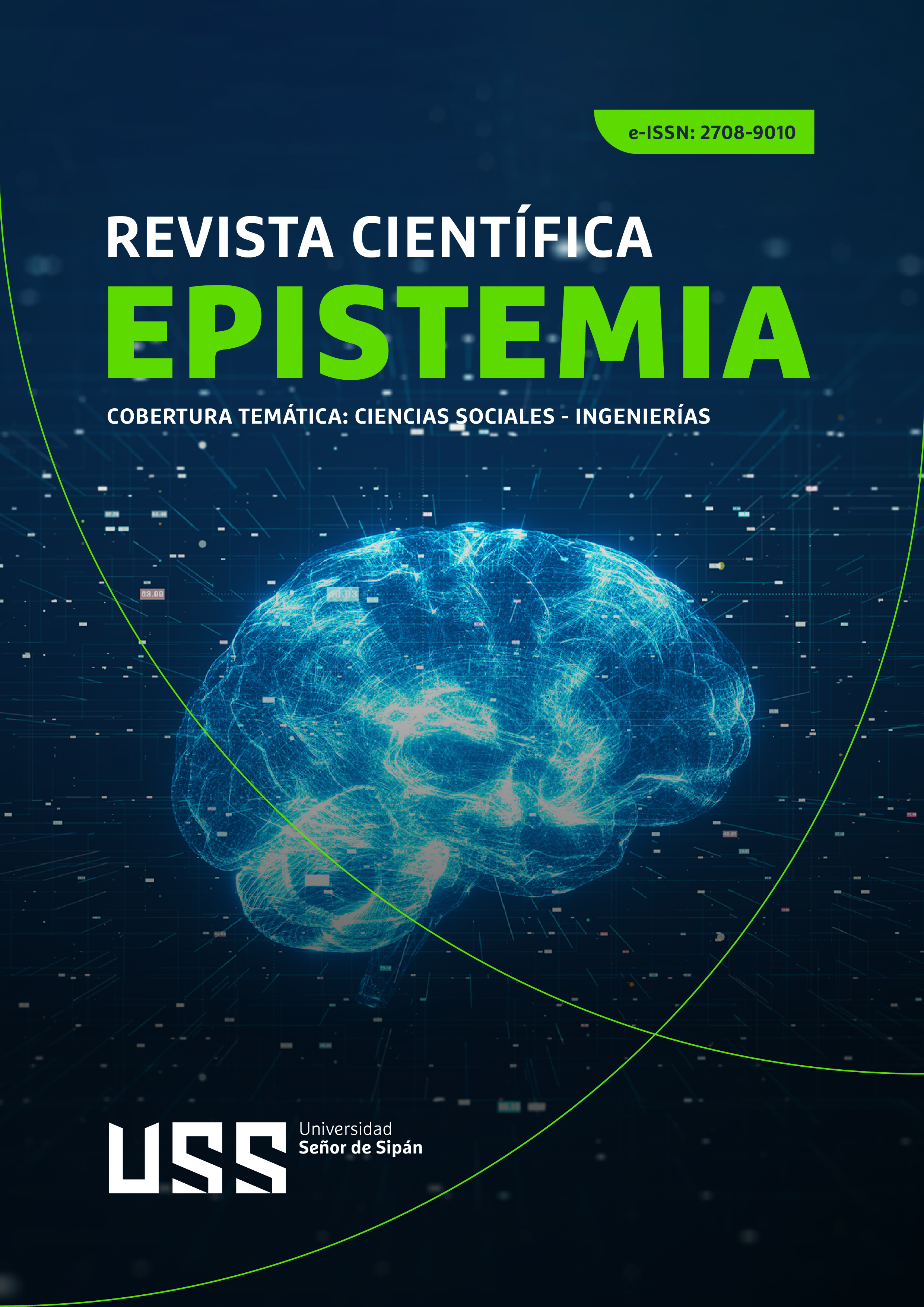Importance of Corporate Social Responsibility actions implemented in a Non-Governmental Organization in Paraguay, 2022
DOI:
https://doi.org/10.26495/erc.2856Keywords:
Corporate Social Responsibility, Non-profit organization, Impact of actions, commitments, ParaguayAbstract
The general objective of this research work is to determine the importance of the Corporate Social Responsibility actions of a Non-Governmental Organization (NGO) in Paraguay, 2022. It was based on a quantitative, non-experimental, transectional and descriptive approach. The population consisted of 173 participants with a sample of 63 people that was calculated under a 95% confidence level, 10% margin of error and 50% degree of heterogeneity. The inclusion criteria consisted of people who have participated in the NGO's CSR programs in 2022 and with voluntary participation. The survey was used through a questionnaire composed of 12 questions, classified into 4 variables (2 sociodemographic and 2 related to CSR actions and their impact) and 10 items for convenience. Among the results, 74.8% consider that these initiatives have contributed to social and economic development, and 49.2% believe that they have improved the quality of life of the inhabitants. Education was identified as the aspect with the greatest impact, with 42.9%. It is concluded that the impact of the NGO's CSR actions has contributed positively, contributing significantly to educational, labor and social development in the local community.
Downloads
References
Abreu, J., & Cruz, G. (2011). Análisis del Concepto de Responsabilidad Social Empresarial. https://core.ac.uk/download/pdf/84812942.pdf
Alegre Brítez, M. Ángel., & Kwan Chung, C. K. (2022). Relación entre responsabilidad social empresarial y educación ambiental, periodo 1995-2015. La Saeta Universitaria Académica y De Investigación, 10(2), 106–115. https://doi.org/10.56067/saetauniversitaria.v10i2.283
Barreiro Noa, G. (2006). Evaluación social de proyectos. La Habana: Universidad de La Habana.
Buitrago Suarez, P. A. (2021). Responsabilidad Social Empresarial: Una aproximación a su concepto, teorías y modelos. https://repository.usta.edu.co/bitstream/handle/11634/34189/2021buitragopaula.pdf?sequenc
Comisión de las Comunidades Europeas (COM). (2001). Libro Verde. https://www.europarl.europa.eu/meetdocs/committees/deve/20020122/com(2001)366_es.pdf
Cuevas Núñez, E. G., Medina, M., Echeverría Pereira, P. G., & Grau Portillo, M. G. (2022). Estrategia educativa enfocada al bienestar económico de los colaboradores de una universidad privada dentro del marco del proyecto de Responsabilidad Social Universitaria. Revista científica en Ciencias Sociales, 4(2), 59–66. https://doi.org/10.53732/rccsociales/04.02.2022.59
Elkington, J. (1998). Cannibals with forks: The triple bottom line of 21st century business. British Columbia, Canada: New Society Publishers.
Fernández Fernández, J. L., & Bajo Sanjuán, A. (2012). La Teoría del Stakeholder o de los Grupos de Interés, pieza clave de la RSE, del éxito empresarial y de la sostenibilidad. aDResearch ESIC, 6(6), 130-143. https://dialnet.unirioja.es/servlet/articulo?codigo=3980299
Fontaine, R. (2008). Evaluación Social de Proyectos. https://economicas.unsa.edu.ar/iie/archivos/syc/Fontaine.pdf
Freeman, R. E. (2008). Ending the so called “Friedman-Freeman” Debate. Business Ethics Quarterly, 18(2), 153-190. https://philarchive.org/rec/FREETS
García López, M. (2015). La Cuenta del Triple Resultado. Revista de Contabilidad y Dirección, 20, 65-77. https://accid.org/wp-content/uploads/2018/11/LA_CUENTA_DEL_TRIPLE_RESULTADO.pdf
Garriga, E., & Melé, D. (2004). Responsabilidad social empresarial. Teorías: mapeo del territorio. Editores académicos de Kluwer.
Ibarra de Ramírez, M. R., Gómez, M. E., & Kwan Chung, C. K. (2022). Proyecto de responsabilidad social universitaria enfocada al asesoramiento de posadas turísticas para el acceso al préstamo financiero línea de crédito fidecomiso concedido por el banco nacional de fomento, Paraguay. Ciencia Latina Revista Científica Multidisciplinar, 6(6), 4065-4080. https://doi.org/10.37811/cl_rcm.v6i6.3758
Instituto Argentino de Responsabilidad Social Empresarial (IARSE). (2024). #CONFIARSE 2024: «Mirada 360° a la Sustentabilidad: De la Retrospección a la Acción Futura. https://iarse.org/
Kotler, P., & Lee, N. (2005). Responsabilidad social corporativa: hacer el mayor bien para su empresa y su causa. New Yersey: John Wiley & Sons, Inc.
Kwan Chung, C. K., Sutty Segovia, H. I., Ibarra de Ramírez, M. R., Sosa Viera, M. J., Fariña Valenzuela, L. T., & Zalazar Echauri, C. M. (2023). Proyecto de Responsabilidad Social Universitaria Full Day: Curso de capacitación para propietarios de posadas turísticas de Paraguay, 2023. Revista de Análisis y Difusión de Perspectivas Educativas y Empresariales, 3(6), 127–135. https://doi.org/10.56216/radee022023dic.a10
Lenguaza Alborno, M. Ángel, Sosa Aoyama, J. K., & Riquelme Benítez, C. R. (2024). Factores de éxito para la sostenibilidad y vigencia de empresas familiares. Revista científica en Ciencias Sociales, 6, 01–08. https://doi.org/10.53732/rccsociales/e601501
Lizcano-Prada, J., & Lombana, J. (2018). Enfoques de la responsabilidad social empresarial en los agronegocios. Estudios Gerenciales, 34(148), 347-356. https://www.redalyc.org/jatsRepo/212/21257589009/index.html
Medina et al. (2002). Teorías sobre la responsabilidad social de la empresa. Centro Universitario de Ciencias Económico Administrativas. htpp://www.economicas.uba.ar/wpcontent/uploads/2017/08/Medina_TeorÃ-as_sobre_la_responsabilidad.pdf
Pérez et al. (2011). Las organizaciones no gubernamentales –ONG–: hacia la construcción de su significado. Ensayos de Economía, 243–260. https://revistas.unal.edu.co/index.php/ede/article/view/27942
Pinzón Camargo, M. A. (2005). El papel de las ONG y sus alcances en la responsabilidad social empresarial. Revista Opera, 75-96. https://www.redalyc.org/articulo.oa?id=67550506
Real Academia Española [RAE]. (2023). ONG. https://dle.rae.es/ong
Downloads
Published
Issue
Section
License
Copyright (c) 2024 Florian Thiessen Neufeld, Chap Kau Kwan Chung

This work is licensed under a Creative Commons Attribution 4.0 International License.












